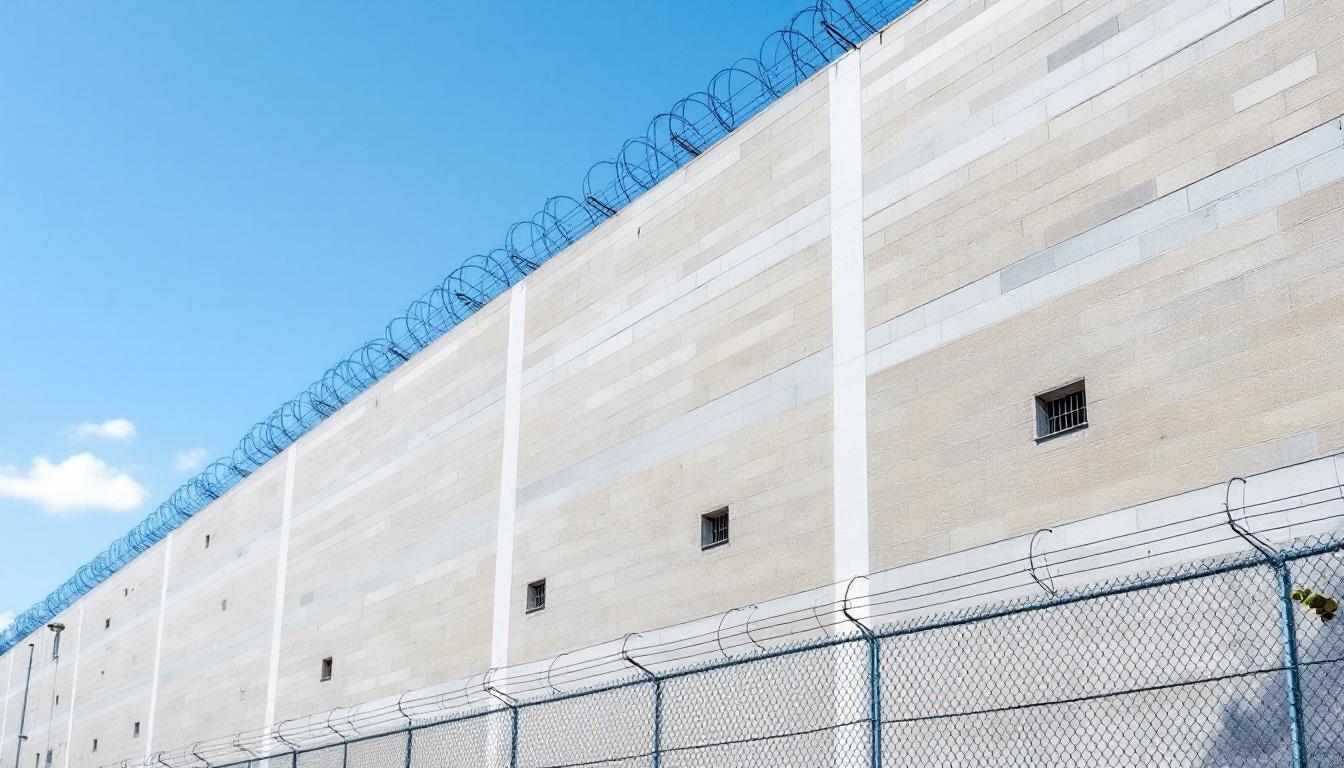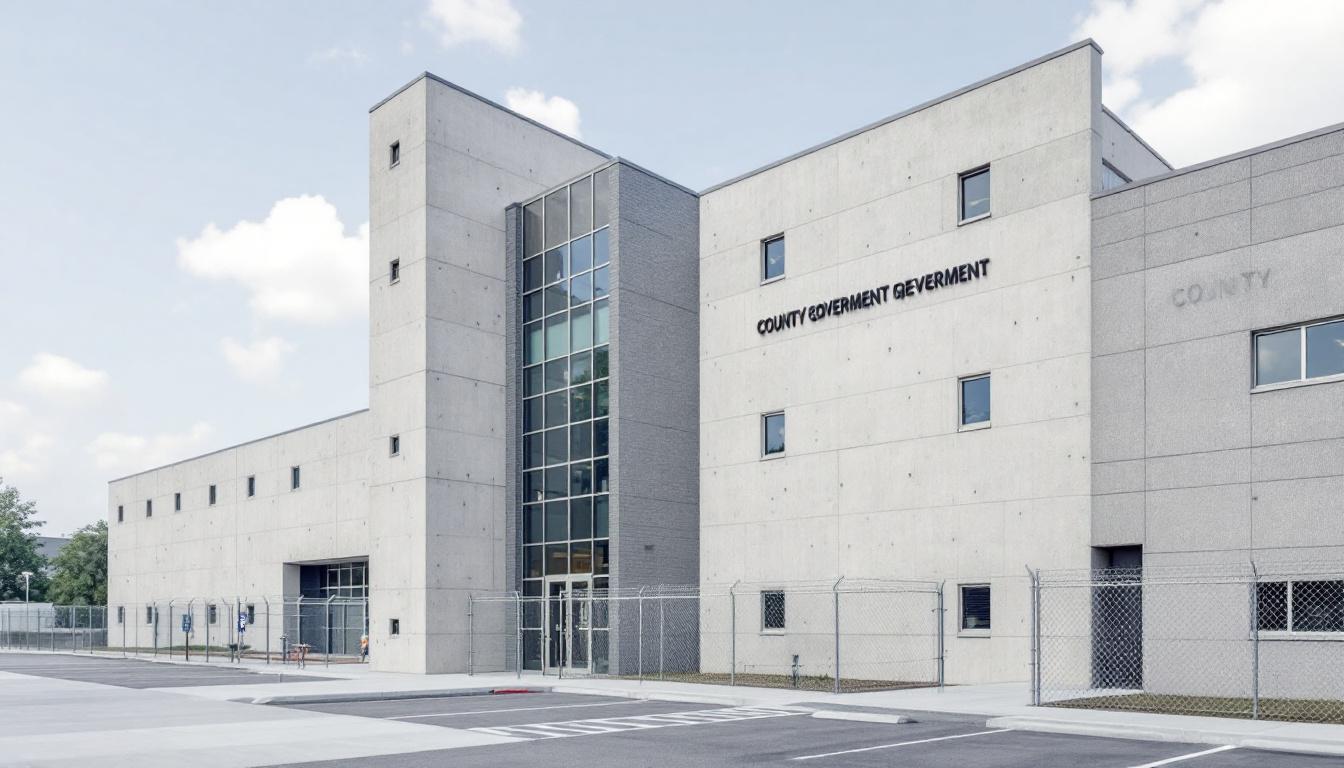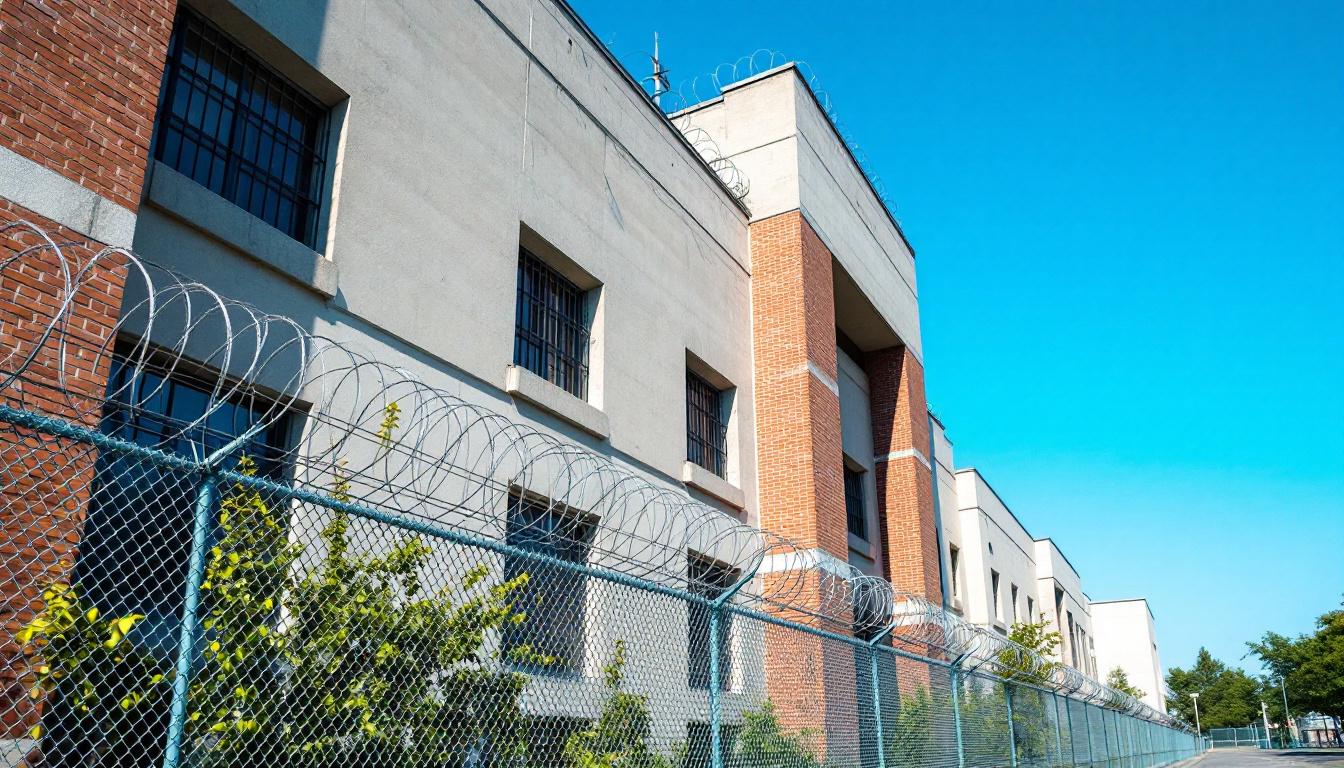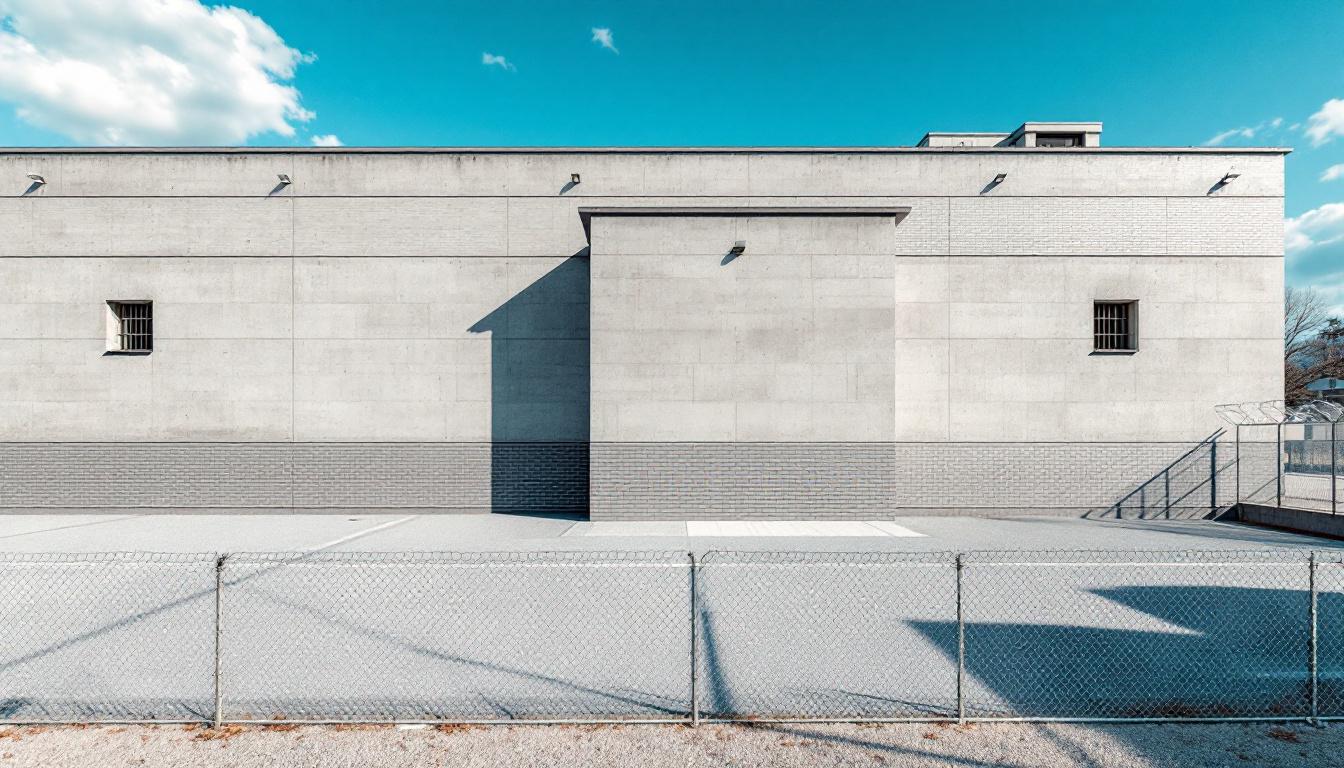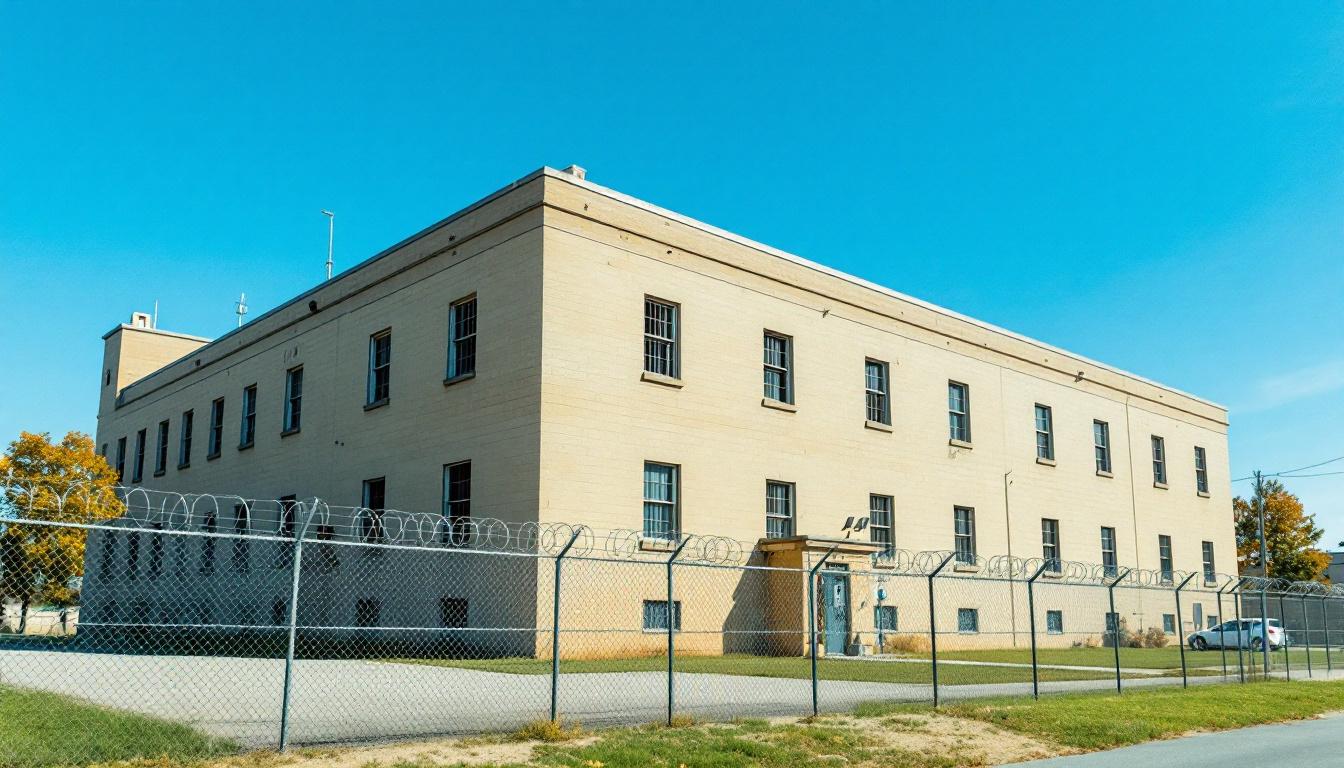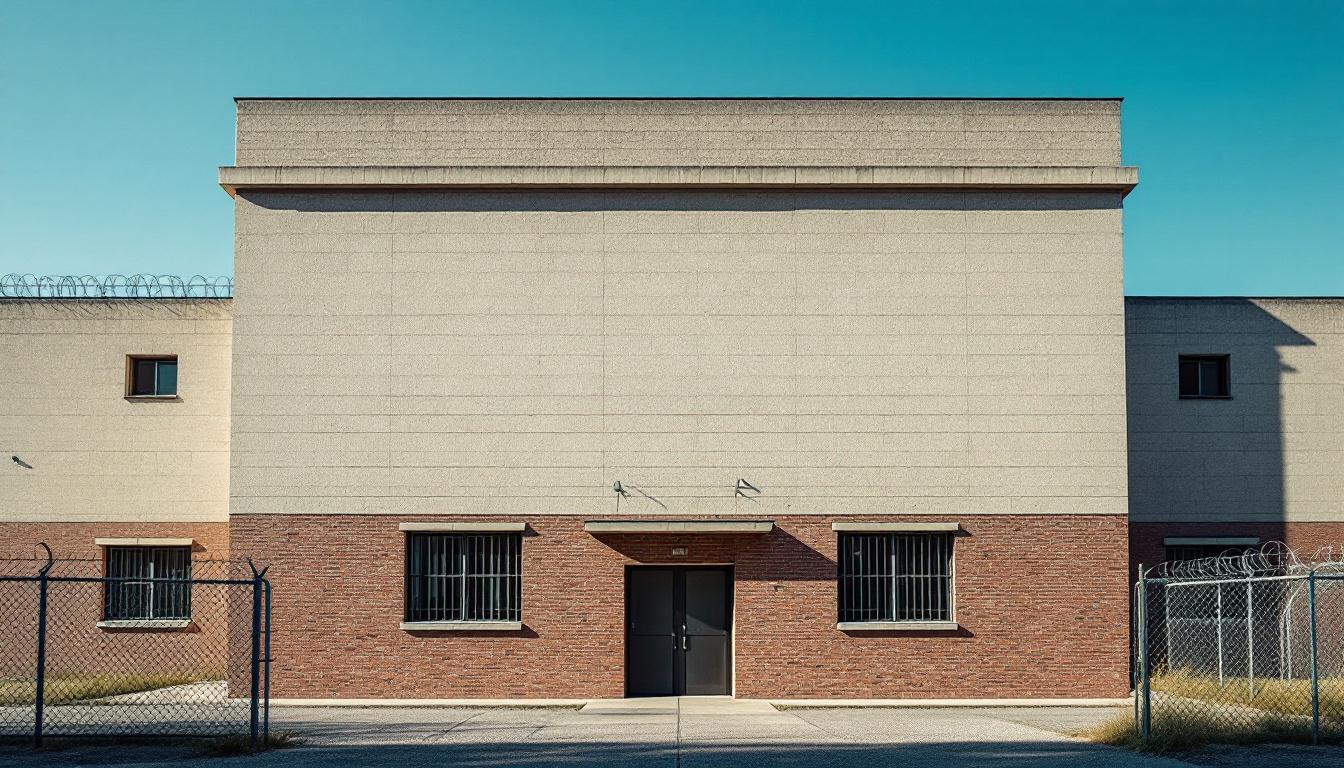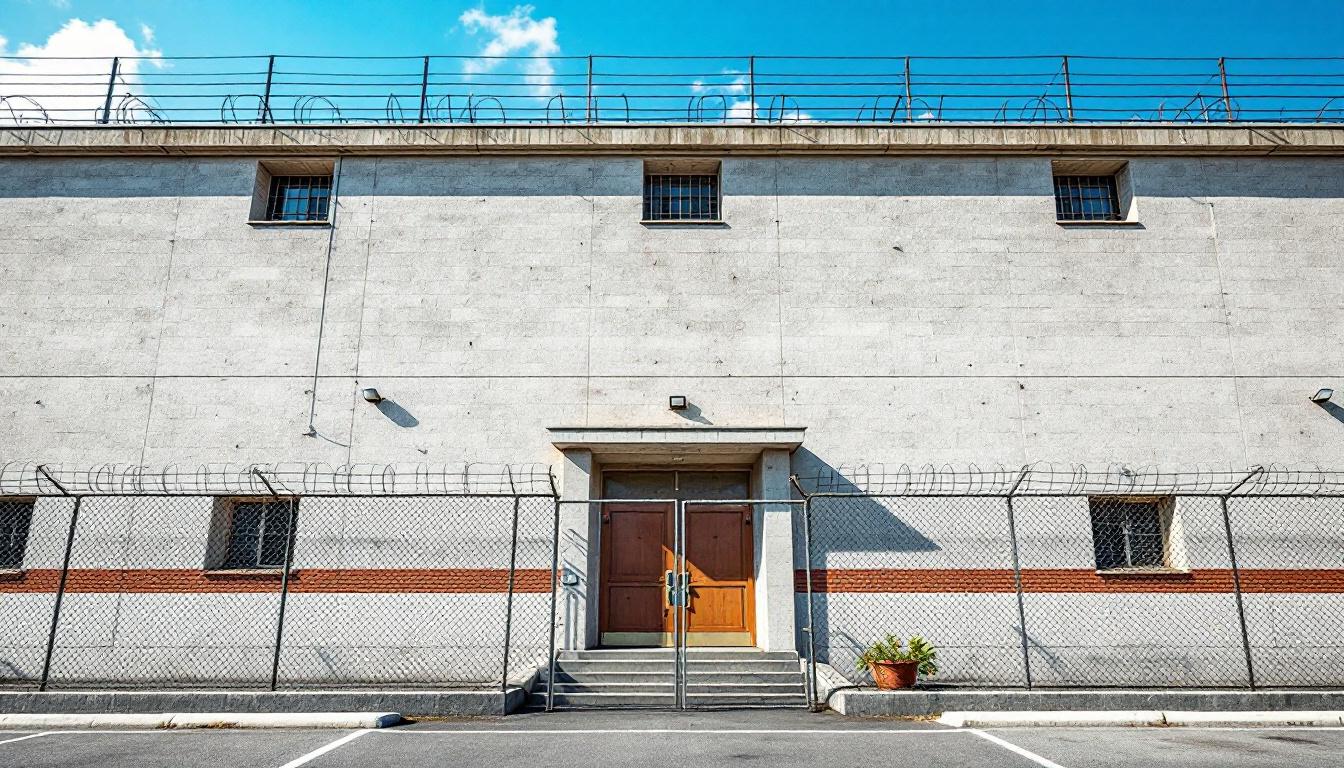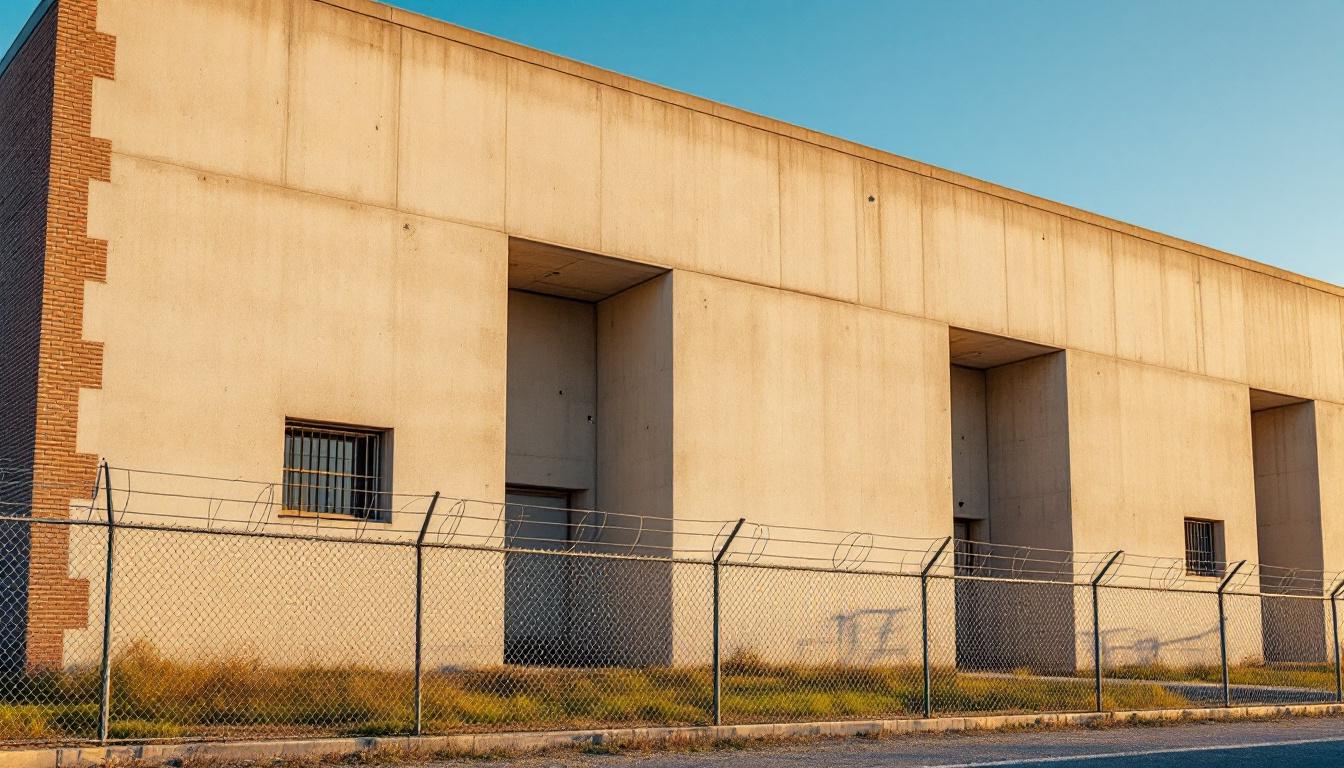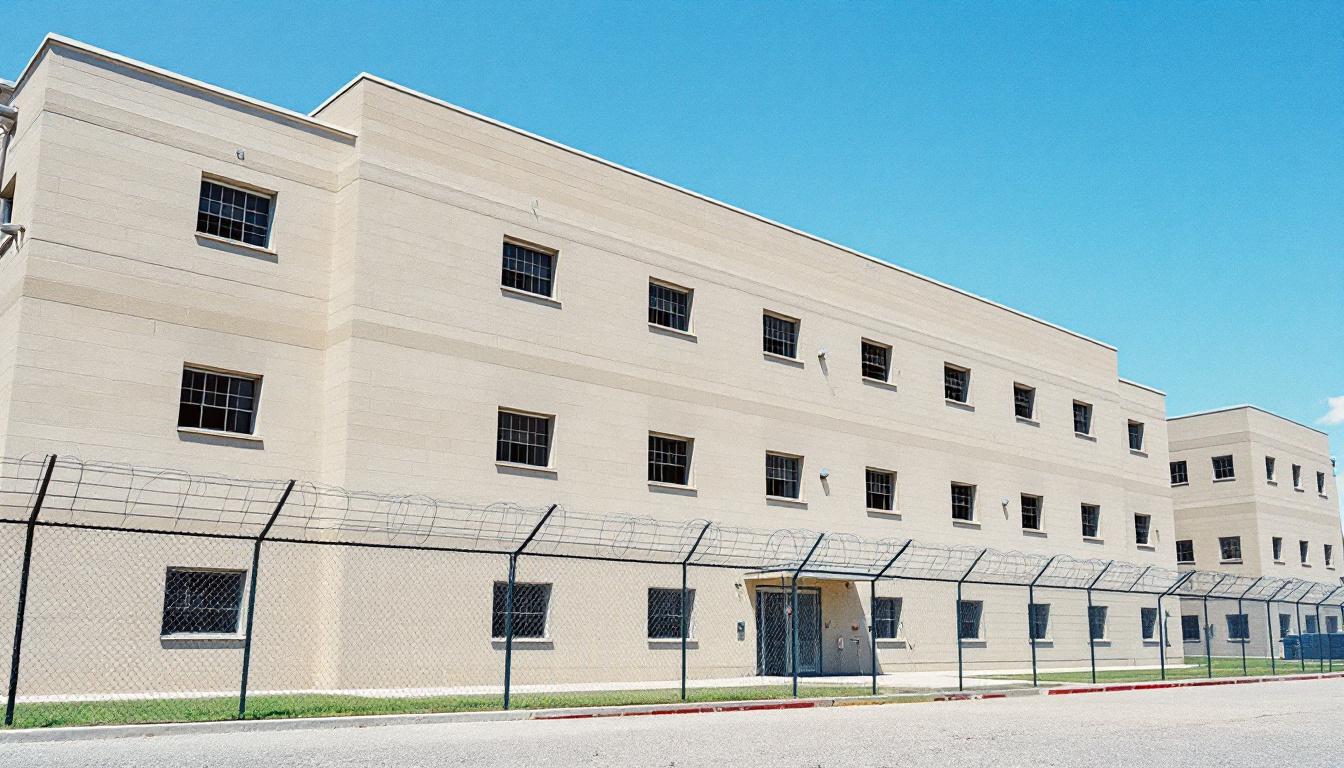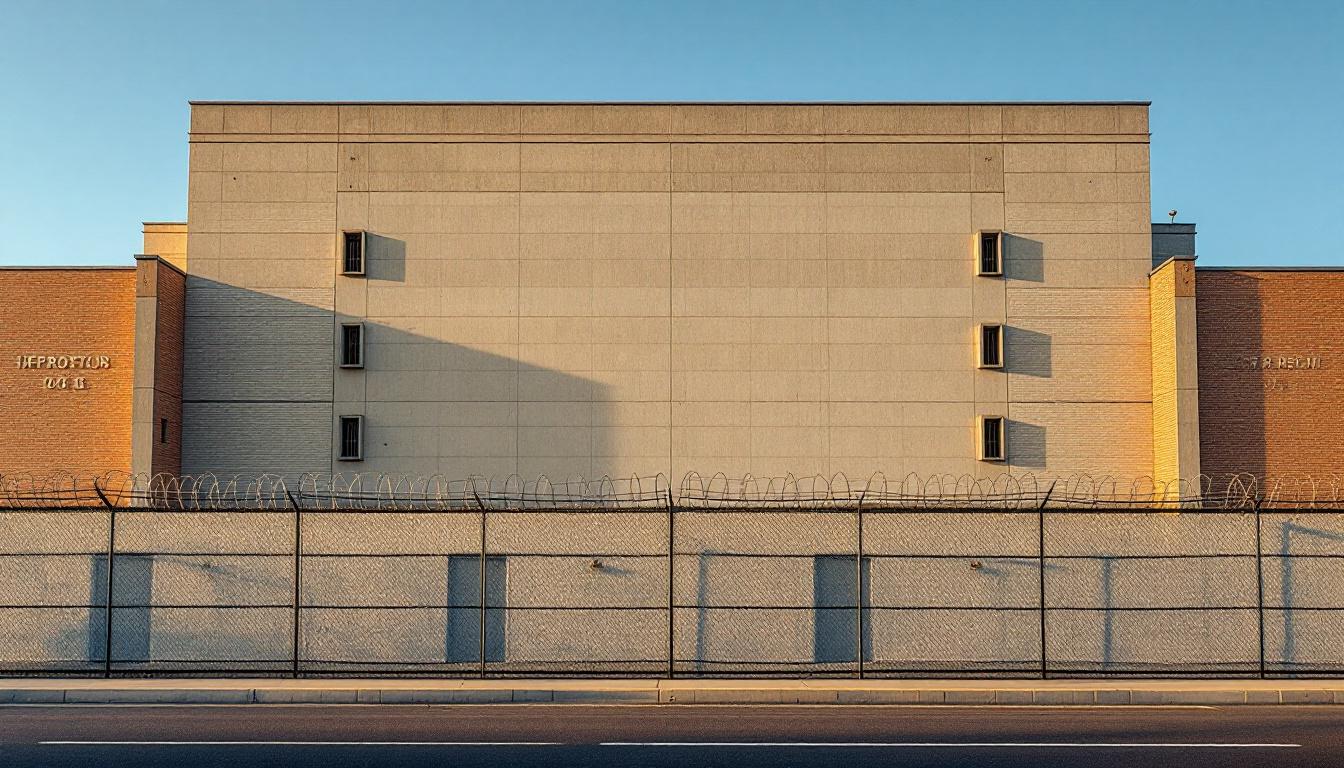
Quick Navigation
How to contact an inmate at TDCJ L.V. Hightower Unit
This comprehensive guide will walk you through how to connect with an inmate at TDCJ L.V. Hightower Unit. Follow the steps below to find an inmate and send letters and photos:
- Search for the inmate using our search tool below
- Create your account or log in to Penmate
- Write your message (up to 6,000 characters)
- Send instantly - inmates receive printed copies daily
Find an Inmate
Search for an inmate to start communicating today
Tip: You can search by first name, last name, or inmate ID number
To contact a person at TDCJ L.V. Hightower Unit start by searching for the person on the official facility website. Perform a search by following these steps:
- Step 1: Enter their first name and last name into the search form and click "Search"
- Step 2: Locate their inmate record
- Step 3: Write down their Inmate ID and any housing information provided
Important! Be sure to enter the person's full name. Nicknames should not be used.
How to Send Messages to Inmates

You can use your phone or computer to send emails, letters, and photos to an inmate. Messages are sent electronically to inmate tablets or kiosks at the facility. If you would like to send a message, start by searching for an inmate at TDCJ L.V. Hightower Unit.
Sending Photos and Postcards

A great way to send love and support to a loved one at TDCJ L.V. Hightower Unit is to send photos and postcards. It only takes a few minutes to send photos from your phone and it makes a huge difference. You can also mail postcards with words of support and inspiration, or design your own postcard for special moments like birthdays and holidays.
Important! Be sure not to send any explicit photos or they may not be approved by the facility. You can also use a photo printing app like Penmate to make sure your photos are printed at the correct size (4x6 or 3x5) and are mailed according to the rules and regulations of TDCJ L.V. Hightower Unit.
Frequently asked questions about TDCJ L.V. Hightower Unit
-
How long does it take to deliver a message?
If you're sending an email message your letter is usually delivered within 24-48 hours. For messages sent via mail you should expect delivery within 3-7 days. All messages will need be approved by TDCJ L.V. Hightower Unit.
-
How much does it cost to send a message to TDCJ L.V. Hightower Unit?
You can send a message free using your phone or mail a message via USPS for the price of a $0.60 stamp and envelope. You can also purchase credits or e-stamps from services starting at $1.99.
-
What services can I use to contact an inmate at TDCJ L.V. Hightower Unit?
Penmate
You can use Penmate to send letters and photos to an inmate from your phone. It's an easy way to stay in touch during your loved one's incarceration. Use the inmate locator to find an inmate's location and contact information, then you can send messages within a few minutes.
Securus messaging
Securus may be another option for communicating with an inmate at TDCJ L.V. Hightower Unit. You can create a friends and family account and purchase credits to send messages. All messages will be reviewed and must be approved by the facility.
JPay
Some county jails and state prisons may support sending messages with JPay. You must register an account with the system, find your loved one, and purchase stamps to send messages. For some locations you can also attach photos.
Smart Jail Mail
You may also check if Smart Jail Mail is available at TDCJ L.V. Hightower Unit. Smart Jail Mail is operated by Smart Communications and has contracted with some state and county jails. After purchasing credits, your messages and photos are sent to the facility, printed out, and then handed out to your loved one.
-
What is the mailing address of TDCJ L.V. Hightower Unit?
Mailing address:
TDCJ L.V. Hightower Unit
902 FM686
Dayton, TX 77535
Phone: (936) 258-8013 -
What are the visiting hours at TDCJ L.V. Hightower Unit?
Visiting hours at TDCJ L.V. Hightower Unit vary by housing unit and security level. Generally, visits are scheduled on weekends and holidays, with some facilities offering weekday visits. Contact the facility directly at (936) 258-8013 or check their website for the current visiting schedule. Visits typically last 30-60 minutes and must be scheduled in advance.
-
What items are prohibited when sending mail to TDCJ L.V. Hightower Unit?
Prohibited items typically include: cash, personal checks, stamps, stickers, glitter, glue, tape, staples, paperclips, polaroid photos, musical or blank greeting cards, hardcover books, magazines with staples, and any items containing metal or electronics. Only send letters on plain white paper with blue or black ink. Photos must be printed on regular photo paper (no Polaroids). Always check with TDCJ L.V. Hightower Unit for their specific mail policies.
-
How do I send money to an inmate at TDCJ L.V. Hightower Unit?
You can send money to an inmate at TDCJ L.V. Hightower Unit through several methods: 1) Online using JPay, Access Corrections, or the facility's approved vendor, 2) Money orders mailed directly to the facility with the inmate's name and ID number, 3) Kiosks located in the facility lobby, or 4) Over the phone using a credit or debit card. Fees vary by method, typically ranging from $2.95 to $11.95 per transaction.
-
Can I schedule a video visit with an inmate at TDCJ L.V. Hightower Unit?
Many facilities now offer video visitation as an alternative to in-person visits. At TDCJ L.V. Hightower Unit, video visits may be available through services like Penmate, Securus Video Connect, GTL, or ICSolutions. Video visits typically cost $10-20 for 20-30 minutes and must be scheduled in advance. You'll need a computer or smartphone with a camera and reliable internet connection. Contact the facility for their specific video visitation policies and approved vendors.
-
What identification do I need to visit an inmate at TDCJ L.V. Hightower Unit?
All visitors must present valid government-issued photo identification such as a driver's license, state ID, passport, or military ID. Minors must be accompanied by a parent or legal guardian who can provide the minor's birth certificate. Some facilities require visitors to be on the inmate's approved visitation list, which may require a background check. Contact TDCJ L.V. Hightower Unit for specific ID requirements and visitor approval procedures.
-
How can I find out an inmate's release date?
To find an inmate's release date at TDCJ L.V. Hightower Unit, you can: 1) Use the online inmate search tool if available, 2) Call the facility's records department, 3) Contact the inmate's case manager or counselor, or 4) Have the inmate provide this information during a call or visit. For privacy reasons, some facilities only release this information to immediate family members.
Facility Overview
Official Website
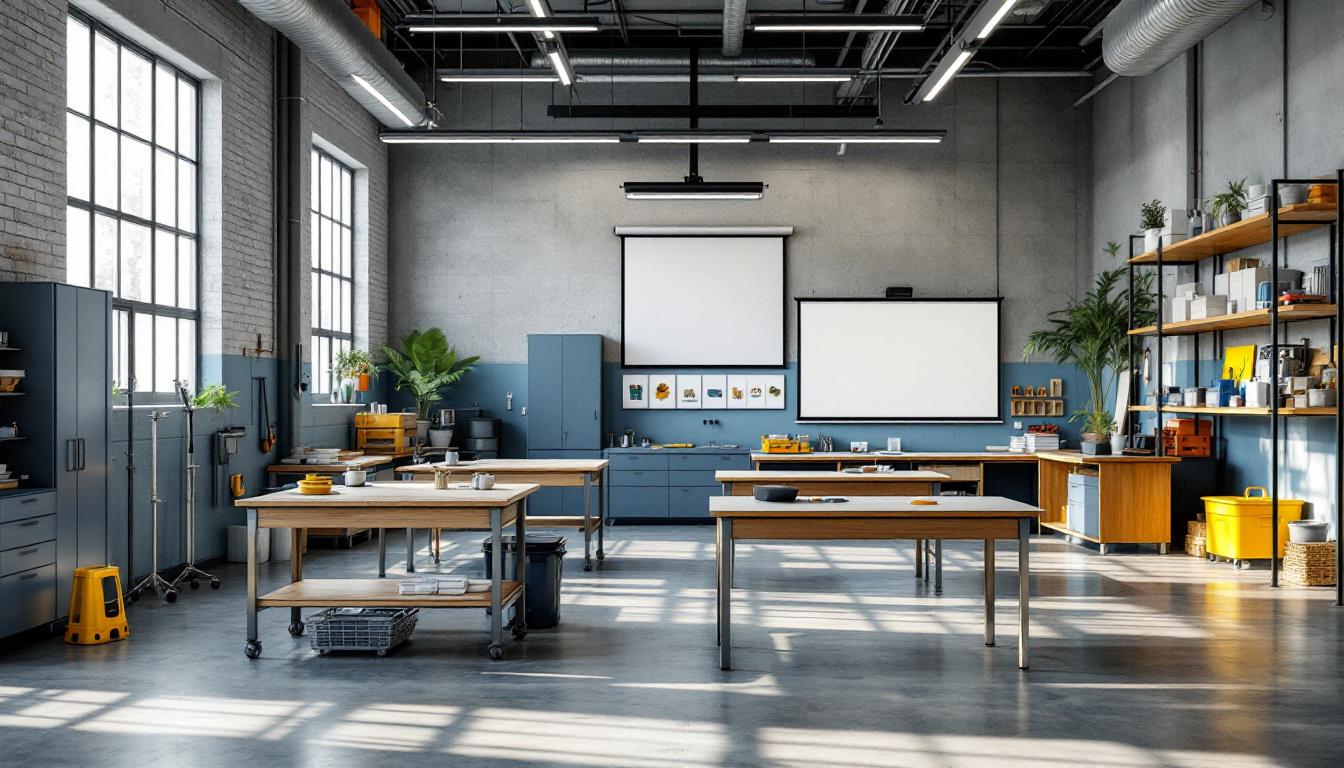
About TDCJ L.V. Hightower Unit
Building bridges between incarcerated individuals and the Dallas community drives the daily operations at HighTower Unit, where systematic reintegration planning begins from the moment someone enters this TX correctional facility. Through carefully structured processes that connect inmates services with local resources, the facility works to establish pathways that extend beyond its walls into neighborhoods, workplaces, and support networks throughout the greater Dallas area. Staff typically coordinate with community organizations to develop individualized transition plans, recognizing that successful reentry requires more than completing a sentence—it demands rebuilding connections that strengthen both individuals and the communities they will rejoin.
The rehabilitation approach at HighTower Unit generally emphasizes skill-building programs that align with Dallas's diverse economic landscape, from construction and manufacturing to service industries that drive the regional economy. Educational opportunities may include basic literacy support, GED preparation, and vocational training designed to match local employment demands. Mental health services and substance abuse counseling often form core components of the programming, delivered through processes that prepare participants for continued care in community settings. Family engagement initiatives typically help maintain crucial relationships during incarceration while building support systems essential for successful transitions back into Dallas neighborhoods and surrounding areas.
Programs & Services
Personal transformation through structured rehabilitation forms the cornerstone of service delivery at HighTower Unit, where comprehensive programming addresses the multifaceted needs of inmates seeking meaningful change. The facility's approach emphasizes skill-building and character development through carefully designed services that foster both practical competencies and personal growth. This holistic methodology recognizes that successful reintegration requires not merely compliance with regulations, but genuine transformation that addresses underlying factors contributing to criminal behavior.
Educational and vocational services typically constitute the foundation of the unit's rehabilitative framework, offering inmates opportunities to develop marketable skills essential for post-release success. Vocational training programs may provide hands-on instruction in various trades, equipping participants with industry-relevant competencies that enhance employment prospects upon reentry. These structured learning environments often emphasize both technical proficiency and workplace readiness, preparing inmates to navigate professional settings with confidence and competence.
Additionally, comprehensive support services address the practical and spiritual dimensions of rehabilitation through diverse programming options. Work programs may offer inmates structured employment opportunities that develop responsibility and work ethic while contributing to facility operations. Faith-based initiatives often provide spiritual guidance and community support, fostering personal reflection and moral development. Essential services such as laundry services and printing operations typically serve dual purposes, maintaining facility functionality while offering inmates practical work experience that translates to valuable job skills in civilian employment settings.
Daily Life & Visitation
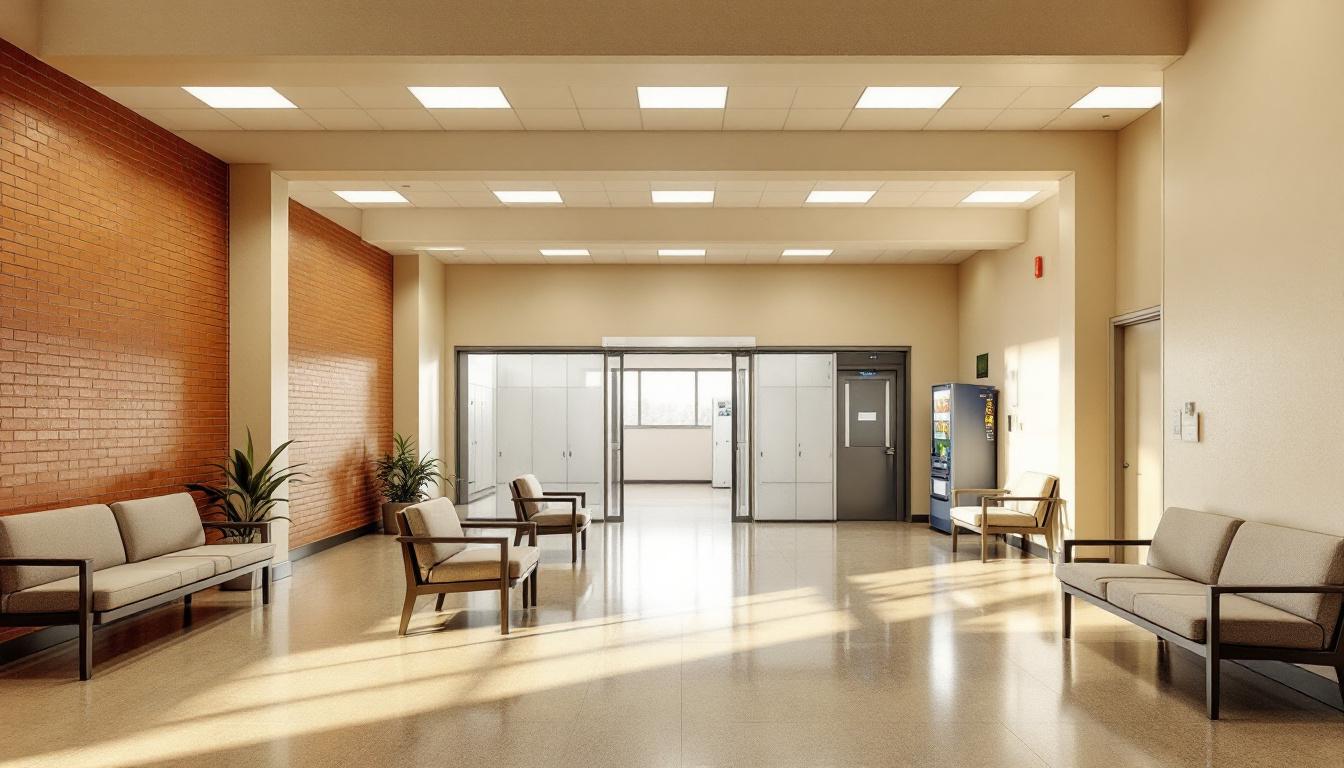
The concrete walls and steel doors of HighTower Unit create a controlled environment where every aspect of daily existence follows established protocols and security measures. Within this structured setting, inmates typically begin their day with early morning counts, followed by meal service in designated dining areas where they consume state-provided meals that meet basic nutritional requirements. Today's routine generally includes scheduled activities such as educational programs, work assignments, and recreational periods, while inmates consistently adapt to the regimented schedule that governs movement throughout the facility.
Living accommodations at the facility usually consist of shared cells or dormitory-style housing units, where inmates organize their limited personal belongings within designated storage areas and maintain their living spaces according to institutional standards. Additionally, the commissary system provides opportunities for inmates to purchase approved items such as snacks, hygiene products, and writing materials, which help personalize their otherwise standardized environment. While privacy remains minimal, inmates often develop routines and coping strategies that help them adapt to the confined living conditions and shared spaces.
The facility typically provides structured programming schedules that may include vocational training, educational classes, and counseling sessions designed to support rehabilitation goals. Additionally, recreational opportunities such as outdoor exercise periods, library access, and organized activities provide necessary physical and mental stimulation within the secure environment. Visitation policies generally allow approved family members and friends to maintain contact through scheduled visits, phone calls, and correspondence, while these connections often serve as crucial support systems that help inmates maintain relationships with the outside world and prepare for eventual reintegration into their communities.
Ready to Connect?
Start communicating with your loved one today
Search for an Inmate
